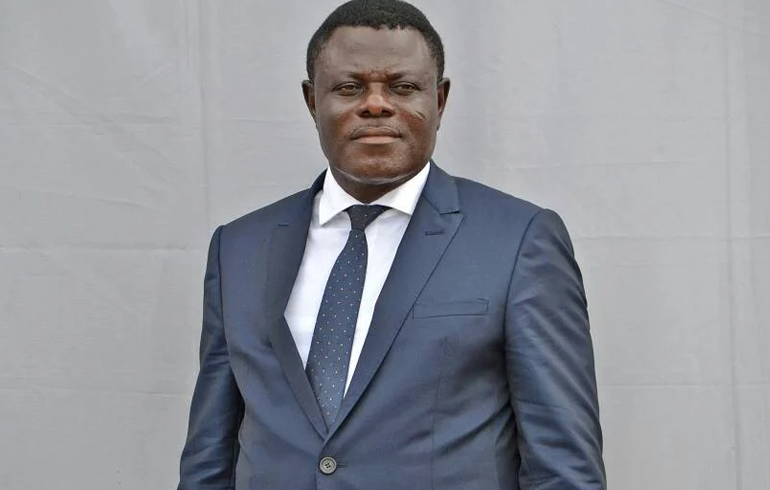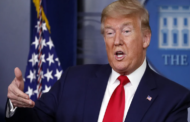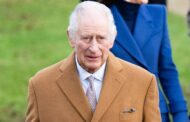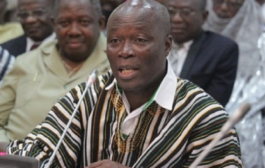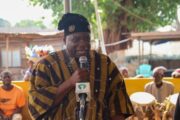US President Donald Trump is expected to sign an executive order redefining the legal protections given to social media platforms.
It means platforms such as Facebook and Twitter could be sued if they are judged to “deceptively” block posts.
The draft of the executive order says social networks are engaged in “selective censorship”.
Mr Trump has regularly accused social-media platforms of stifling or censoring conservative voices.
On Wednesday, Mr Trump accused Twitter of election interference, after it added fact-check links to two of his tweets.
“Big action to follow,” he tweeted.
What does the executive order say?
The order sets out to clarify the Communications Decency Act, a US law that offers online platforms such as Facebook, Twitter and YouTube legal protection in certain situations.
Under Section 230 of the law, social networks are not generally held responsible for content posted by their users but can engage in “good-Samaritan blocking”, such as removing content that is obscene, harassing or violent.
And the draft of the executive order points out this legal immunity does not apply if a social network edits content posted by its users.
It also says “deceptive” blocking of posts, including removing a post for reasons other than those described in a website’s terms of service, should not be offered immunity.
Republican senator Marco Rubio is among those arguing the platforms take on the role of a “publisher” when they add fact-check labels to specific posts.
“The law still protects social media companies like Twitter because they are considered forums not publishers,” Mr Rubio said.
“But if they have now decided to exercise an editorial role like a publisher, then they should no longer be shielded from liability and treated as publishers under the law.”
The draft of the executive order also calls for:
the Federal Communications Commission (FCC) to spell out what type of content blocking will be considered deceptive, pretextual or inconsistent with a service provider’s terms and conditions
a review of government advertising on social-media sites and whether those platforms impose viewpoint-based restrictions
the re-establishment of the White House “tech bias reporting tool” that lets citizens report unfair treatment by social networks
How have the social networks responded?
Twitter, which is repeatedly named in the draft of the executive order, declined to comment.
YouTube, owned by Google, has not yet responded.
In an interview with Fox News on Wednesday, Facebook’s chief executive, Mark Zuckerberg, said censoring a social media platform would not be the “right reflex” for a government concerned about censorship.
Fox said it would play its full interview with Mr Zuckerberg on Thursday.
One conservative think tank warned the executive order could have unintended consequences.
“In the long run, this conservative campaign against social media companies could have a devastating effect on the freedom of speech,” Matthew Feeney, of the Cato Institute, said.
And changing the Communications Decency Act to “impose political neutrality on social media companies” could see the platforms filled with “legal content they’d otherwise like to remove” such as pornography, violent imagery and racism.
“Or they would screen content to a degree that would kill the free flow of information on social media that we’re used to today,” he said.
Mr Feeney said the draft of the executive order was a “mess” but could prove politically popular in the run-up to a presidential election.
What sparked the latest row?
The long-running dispute between Mr Trump and social-media companies flared up again on Tuesday, when two of his posts were given a fact-check label by Twitter for the first time.
He had tweeted, without providing evidence: “There is no way (zero) that mail-in ballots will be anything less than substantially fraudulent.”
Twitter added a warning label to the post and linked to a page describing the claims as “unsubstantiated”.
Then, on Wednesday, Mr Trump threatened to “strongly regulate” social-media platforms.
He tweeted to his more than 80 million followers Republicans felt the platforms “totally silence conservatives”.
And he would not allow this to happen.
In an earlier tweet, he said Twitter was “completely stifling free speech”.
Twitter’s chief executive, Jack Dorsey, responded to criticism of the platform’s fact-checking policies in a series of posts, saying: “We’ll continue to point out incorrect or disputed information about elections globally.”
Mr Trump wrote a similar post about mail-in ballots on Facebook, on Tuesday, and no such warnings were applied.
Twitter has tightened its policies in recent years, as it faced criticism its hands-off approach allowed fake accounts and misinformation to thrive.
Is Twitter stifling free speech?
Analysis by Christopher Giles, BBC Reality Check
Twitter says it enforces its rules “impartially for all users, regardless of their background or political affiliation”.
But there is no publicly available list of which accounts have had fact-check labels or been suspended.
Twitter told BBC News it had previously added fact-check labels to two tweets by Chinese government spokesman Zhao Lijian, who had speculated back in March coronavirus may have originated in the US.
The company said the tweets had contained “potentially misleading content about Covid-19 and have been labelled to provide additional context to the public”.
But these labels were added retrospectively, after Twitter had been scrutinised for placing them on President Trump’s posts.
Twitter says common reasons for suspending accounts are abusive tweets and spam – not the censoring of political opinions.
But critics say Twitter’s decision-making process is opaque.
And these criticisms don’t just come from conservatives.
Human rights groups have previously claimed Twitter has censured dissident voices and activists.
In 2018, Mr Dorsey said its staff were “more left-leaning”.
But he added: “We do not look at content with regards to political viewpoint or ideology.”
Source: BBC




